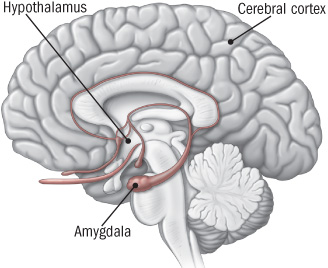It’s that time of year. The dreaded bar exam. The final threshold you must cross to transition from law student to lawyer. I took the bar exam in three different states — New York, Florida and California. With each exam, the overwhelming anxiety, sense of doom, and the angst decreased but there’s no way to sugar coat it. Taking the bar exam is an awful experience.
Since it is an awful experience, there’s a certain amount of acceptance that must happen. The next 10 days will suck, but you’ll get through it. This too shall pass.
I wrote this article two years ago — take a look for some helpful suggestions.
In this article, I’ll address some tools you can use to soothe your mind as you gear up for the final stretch as well as tips for during the exam.
Understanding the Stress Response
It’s helpful to understand how the mind and body responds to stressful situations.
[r]eactions to stress is also known as the “fight-or-flight” response because it evolved as a survival mechanism, enabling people and other mammals to react quickly to life-threatening situations. The carefully orchestrated yet near-instantaneous sequence of hormonal changes and physiological responses helps someone to fight the threat off or flee to safety. Unfortunately, the body can also overreact to stressors that are not life-threatening, such as traffic jams, work pressure, and family difficulties.
The stress response begins in the amygdala. When it detects danger, it sends distress signal to the hypothalamus.
The hypothalamus is a bit like a command center. This area of the brain communicates with the rest of the body through the autonomic nervous system, which controls such involuntary body functions as breathing, blood pressure, heartbeat, and the dilation or constriction of key blood vessels and small airways in the lungs called bronchioles. The autonomic nervous system has two components, the sympathetic nervous system and the parasympathetic nervous system.
The body releases adrenaline into the bloodstream, leading to physiological changes. These reactions includes increase in heart rate, increase in blood pressure, quickening of the breath, and so forth.

These natural reactions to stressful stimuli is the body’s way of ensuring survival. Of course, these reactions would be very useful if there’s a sabre tooth tiger trying to kill you. Not so helpful when you look at a bar exam question and go into panic mode because you have no idea what the answer might be.
The question is, when the body goes into fight-or-flight mode, how do you counteract it? How do you return the body to homeostasis so that you can access other parts of the brain – for example, the pre-frontal cortex that allows you to logically think through a problem?
Begin Again
First, let’s start with working through pre-bar exam jitters.
During these last days before the exam, it’s natural to feel acute anxiety or stress, feel disoriented, tired, and overwhelmed. You’ve been cramming your brain with more information than usual in a very short period of time.
Let me say that again. Much of what you’re experiencing is NORMAL. Just as it would be normal for your heartrate to go up, blood pressure to increase, and for your breath to quicken if you were being chased by a sabre tooth tiger, it’s also normal and expected that you experience distress in these final days leading up to the bar exam.
The key is how you respond to this natural physiological reaction. When you catch yourself mind drifting into space, unable to focus, don’t waste precious mental resources berating yourself or engaging in negative self-talk. Rather than tell yourself you shouldn’t feel stressed, anxious, or you should be more calm, simply acknowledge where you are in this moment.
Remember, this is temporary. For example, let’s imagine you’re going through your flashcards and you can’t remember some critical key piece of Contract law. Your brain goes into hyperdrive mode, trying to search for the answer. The body goes into fight-or-flight mode, your heart starts beating faster, your stomach tightens, you start breathing faster. All feeding into the loop of stimulus, stress cycle.
This is a critical moment. First, recognize what is happening. You’re experiencing a stressful situation. Then take a few deep breath. Practice this BEFORE you get to the exam room. Between now and the day of the exam, use this video below and practice engaging in deep diaphragmatic breathing several times a day.
Once you feel your body returning back to homeostasis, simply begin again. Pick up where you left off. Let go of any narrative or self-judgement about performing better, not doing well enough, etc.
All the same guidelines apply during the exam. There will undoubtedly be questions you won’t know the answers to. You’ll get stuck. You’ll feel as though there isn’t enough time to fully answer the essay question. The bar exam is not only about memorizing information, doing the analysis, writing but also about working through the mental chatter.
Finally, remember to treat yourself kindly during this time. Engage in some activity to nourish you. Go for a walk. Listen to your favorite song. Dance. Do yoga. Take your bicycle out for a spin around the block. Call your best friend. Cuddle with your pet.

